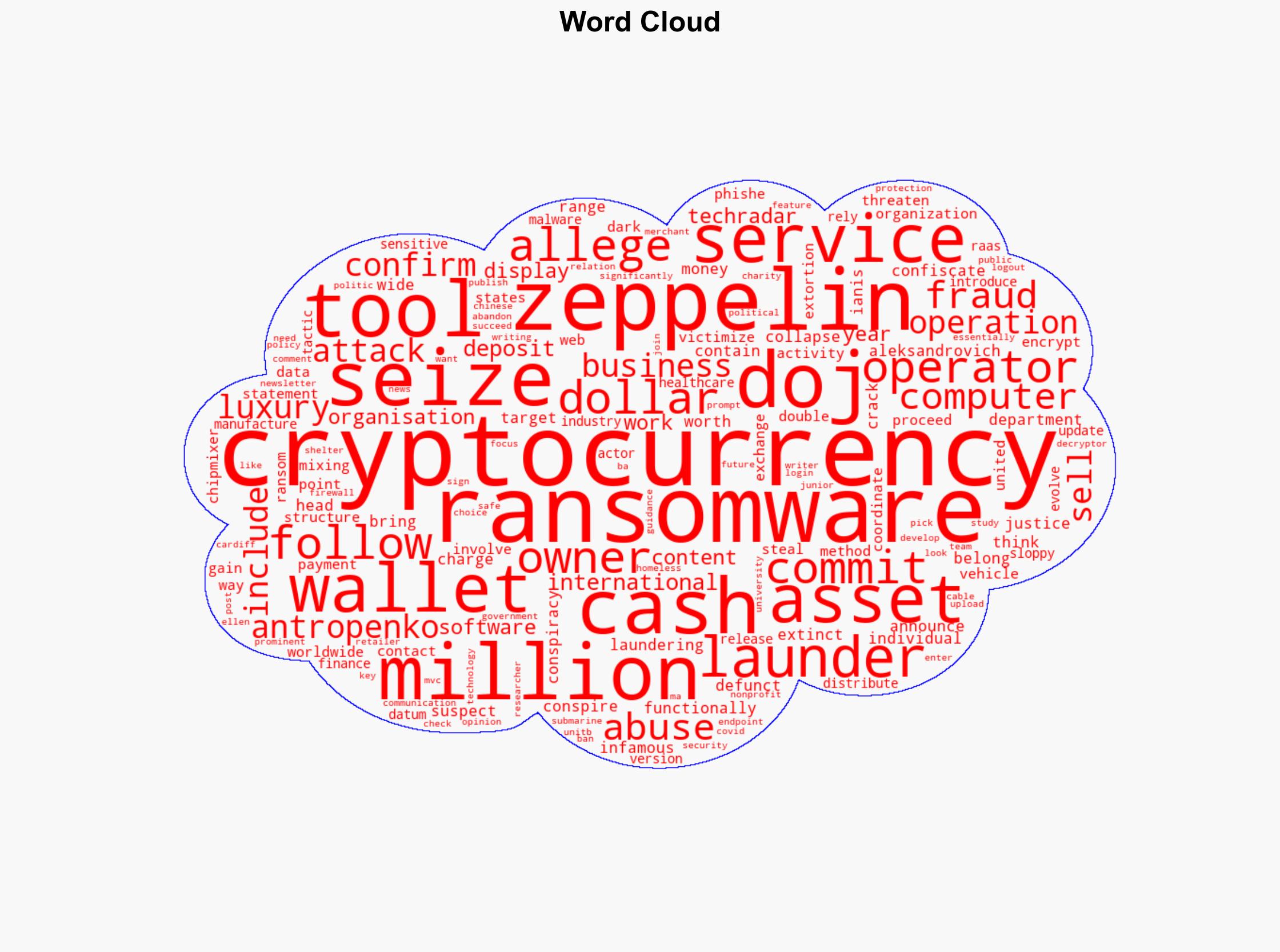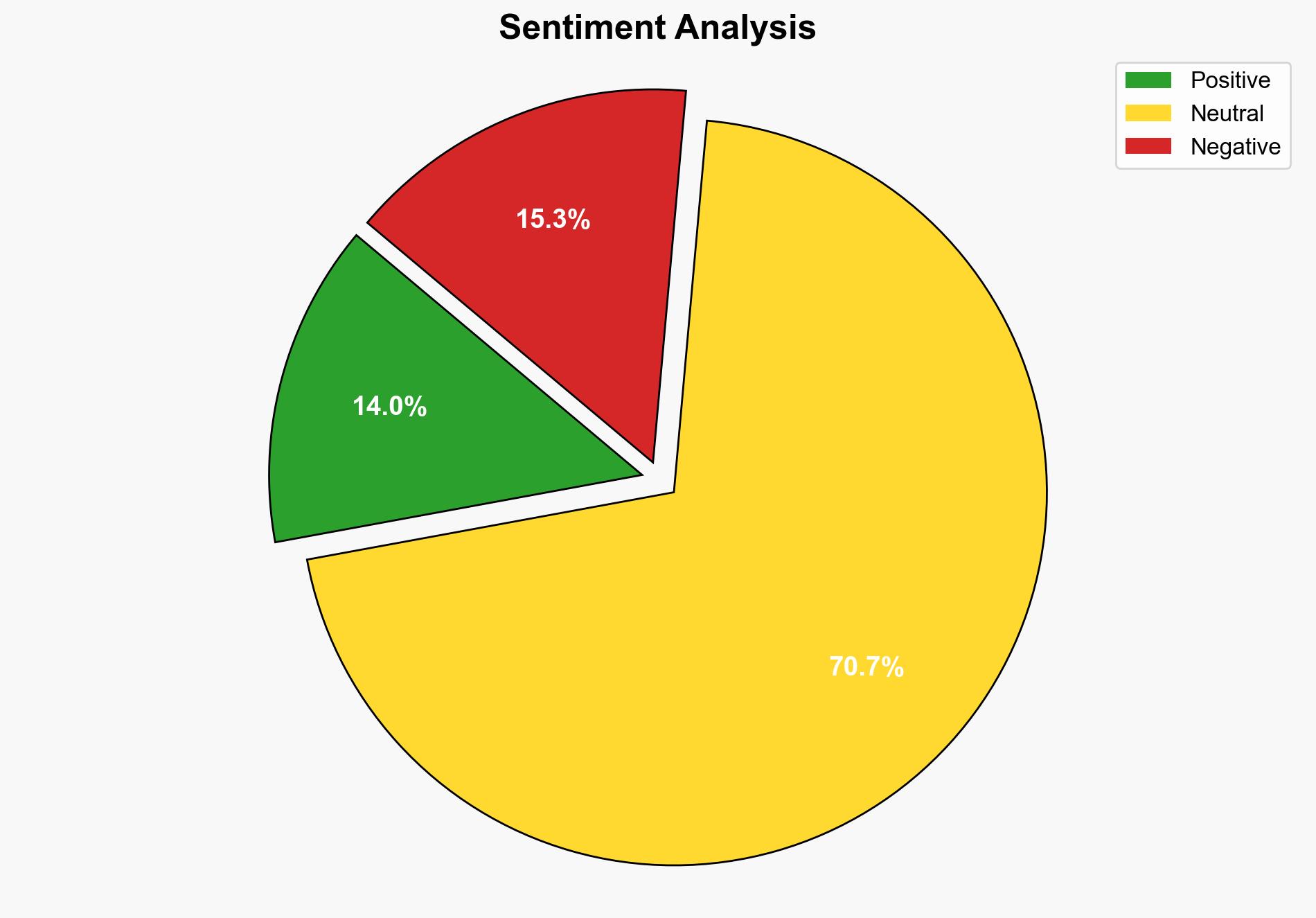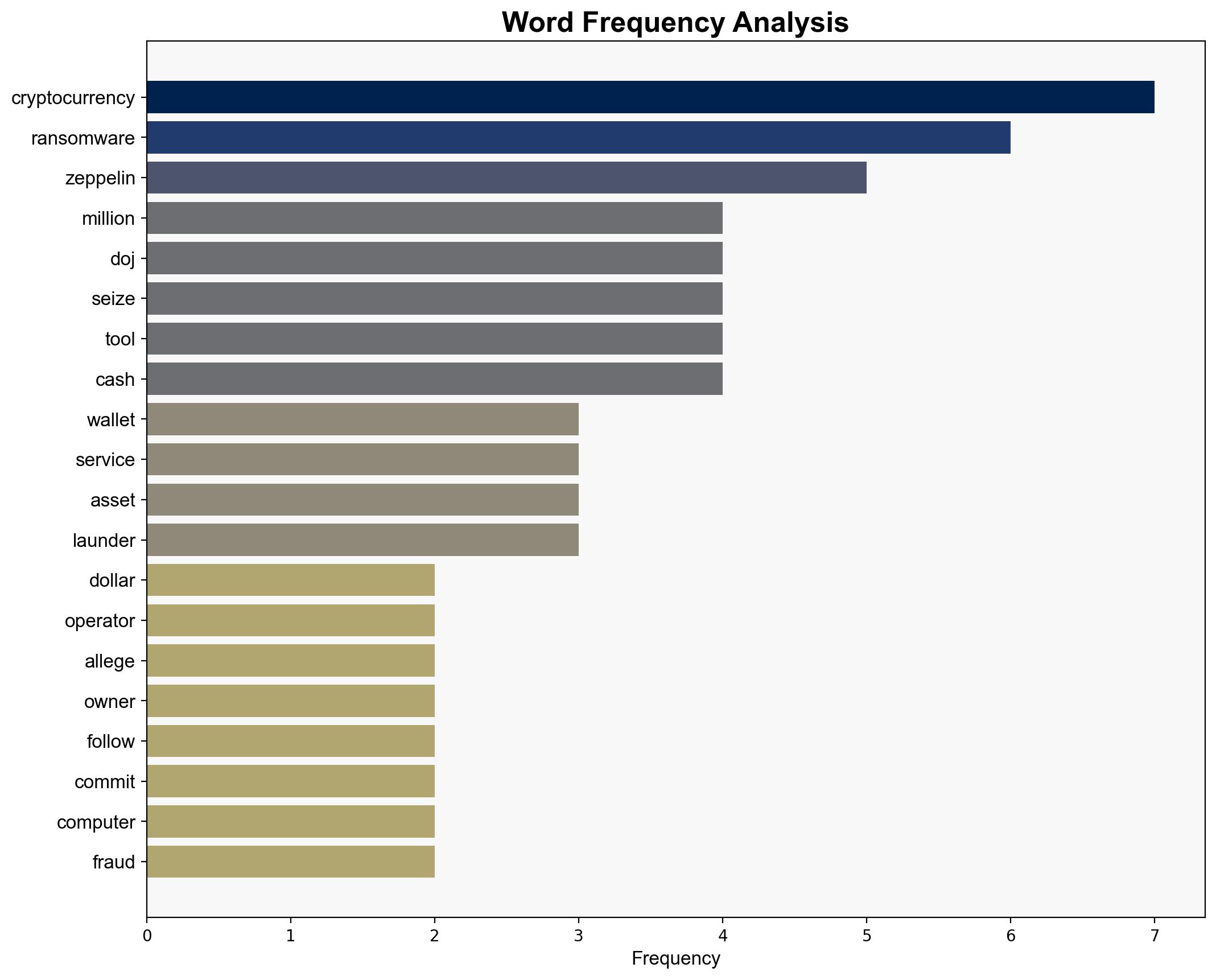Millions of dollars in cryptocurrency has been confiscated as the DoJ cracks down on an infamous ransomware operator – TechRadar
Published on: 2025-08-18
Intelligence Report: Millions of dollars in cryptocurrency has been confiscated as the DoJ cracks down on an infamous ransomware operator – TechRadar
1. BLUF (Bottom Line Up Front)
The Department of Justice’s seizure of cryptocurrency linked to the Zeppelin ransomware operation indicates a significant disruption in ransomware activities. The most supported hypothesis is that this action will temporarily deter similar operations, but the underlying infrastructure and tactics may adapt and persist. Confidence level: Moderate. Recommended action: Enhance international cooperation and improve detection and response capabilities to counter evolving ransomware tactics.
2. Competing Hypotheses
1. **Hypothesis A**: The seizure of cryptocurrency and assets from the Zeppelin ransomware operation will significantly disrupt and deter future ransomware activities by dismantling a key operator and signaling heightened enforcement.
2. **Hypothesis B**: While the seizure affects the Zeppelin operation, other ransomware groups will adapt by improving their operational security and diversifying their tactics, leading to a temporary setback rather than a long-term deterrent.
Using the Analysis of Competing Hypotheses (ACH) 2.0, Hypothesis B is better supported. Despite the seizure, the adaptability and resilience of ransomware operators suggest that the threat will persist, albeit with modifications.
3. Key Assumptions and Red Flags
– **Assumptions**:
– The seizure will have a deterrent effect on other ransomware operators.
– The Zeppelin operation was a significant player in the ransomware ecosystem.
– **Red Flags**:
– Lack of detailed information on the extent of Zeppelin’s network and its connections to other groups.
– Potential overestimation of the impact of asset seizures on decentralized and resilient cybercriminal networks.
4. Implications and Strategic Risks
The seizure may lead to short-term disruptions in ransomware activities, but the risk of adaptation and evolution in tactics remains high. The economic impact on targeted industries, such as healthcare and finance, could persist if ransomware operators innovate. Geopolitically, the operation underscores the need for international collaboration in cybercrime enforcement.
5. Recommendations and Outlook
- Enhance international law enforcement collaboration to track and dismantle ransomware networks globally.
- Invest in advanced threat detection and response systems to quickly adapt to evolving ransomware tactics.
- Scenario Projections:
- Best: Sustained international efforts lead to a significant reduction in ransomware incidents.
- Worst: Ransomware operators develop more sophisticated methods, increasing the frequency and impact of attacks.
- Most Likely: A temporary decline in ransomware activities followed by a resurgence with modified tactics.
6. Key Individuals and Entities
– Ianis Aleksandrovich Antropenko: Alleged head of the Zeppelin ransomware operation.
7. Thematic Tags
national security threats, cybersecurity, counter-terrorism, regional focus




